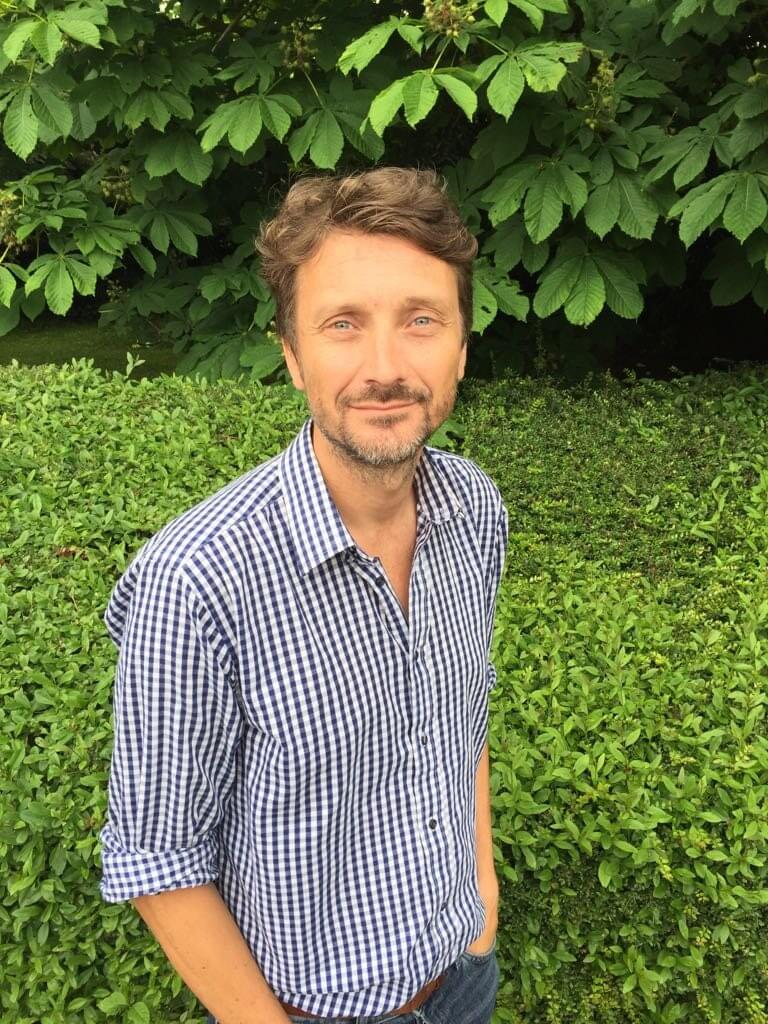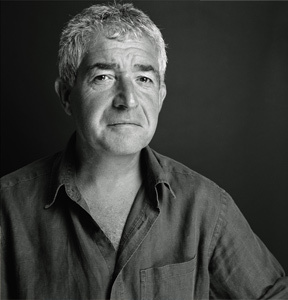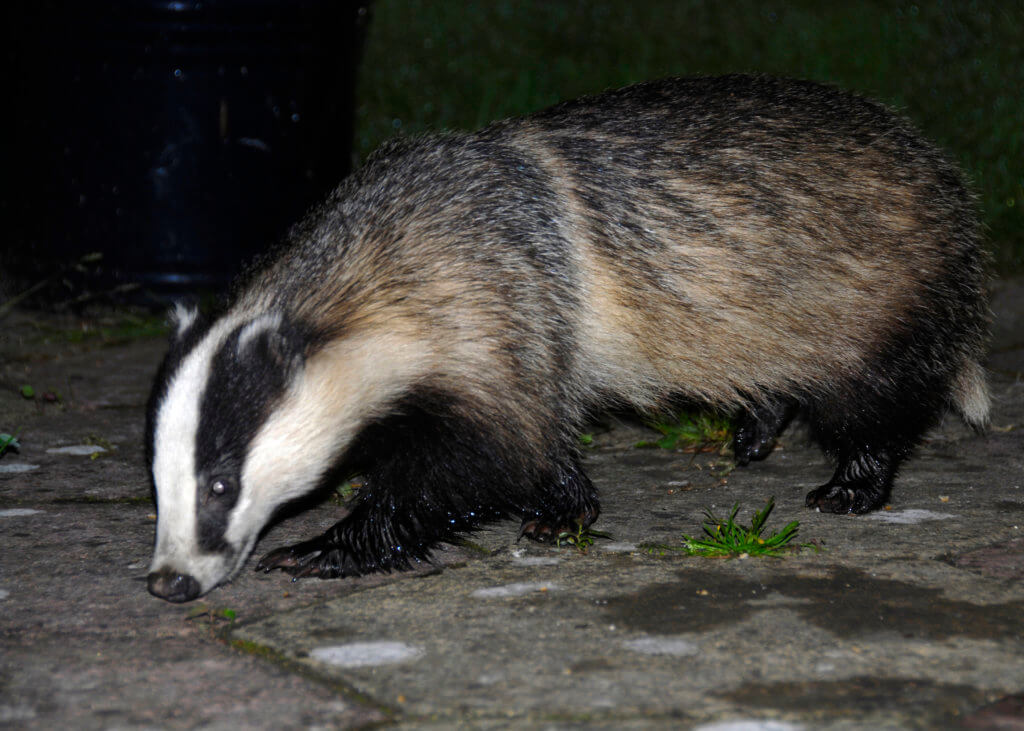
Dominic Woodfield is the Managing Director of Bioscan, a long established and well respected consultancy specialising in applied ecology. He is a life-long birder, a specialist in botany, habitat restoration and creation and in protected fauna including bats, herpetofauna and other species. He is also a highly experienced practitioner in Environmental Impact Assessment and Habitats Regulations Assessment. Most of his work is for the development sector, but he has also undertaken commissions for Natural England, the RSPB, Wildlife Trusts and campaign groups. He once mounted an independent legal challenge in defence of an important site for butterflies in Bicester, Oxfordshire, which resulted in planning permission for a five-hundred unit housing development being overturned. He lives in Oxford with his partner and family.
On Wednesday, Tony Juniper issued a statement on the .gov website about the badger cull. It was released to coincide with the formal issue by the agency of licences enabling the continuation and further expansion of the Government’s badger cull, bringing with it the prospect of near elimination of badgers over vast swathes of countryside in western and northern English counties. Tony’s statement can be found here . He says that he has fulfilled his promise, made when first taking the Chair of NE, to look into the badger cull and has satisfied himself that all is legitimate and well in respect of Natural England’s role in facilitating it.
The suggestion is that it is simply the reaching of this conclusion that has elicited this statement, but the timing suggests other factors at play. Possibly pre-emption of an awaited ruling in the Court of Appeal, but perhaps more so an attempt to answer the renewed disquiet about the cull amongst the public, conservation scientists and veterinarians, and the growing consensus (except within Defra and certain powerful elements of the farming lobby) that the science behind it is flawed, and that such flaws are systematically being outed by poor empirical results. For supporters of the cull, the harsh fact remains that the Government is still unable to point to any clear evidence of significant or sustained reduction in bovine tuberculosis from the killing of badgers. On the other side of the debate, the evidence mounts and mounts that it is pretty much a pointless waste of millions of pounds of tax payers’ money and that it is a distraction from much better means and routes by which to tackle the disease.
When Tony took the chair of NE, many in the conservation sector including myself, breathed a sigh of mixed relief, hope and expectation. After years of the organisation being spearheaded by ex-house builders, accountants and landed individuals with undisguised commercial hunting connections, here at last was someone at the helm with proven expertise and credentials in nature conservation. I know from NE staff that morale within the organisation rose for the first time in many years. Initial soundings were good – Juniper appeared willing to stick his head above the parapet on matters such as Natural England’s decimation by cuts and the dire consequences this had for the exercise of even its most basic functions. Against that context, the statement on badgers issued yesterday contains acutely disappointing diversions into PR speak. Indeed one wonders whether Tony himself actually penned all of it, or whether large parts were written for him.

One or two passages certainly sound like genuine Juniper. He says, for example, that since taking the chair “I have gained a deeper understanding of Natural England’s work and the extent to which it sits within wider Government policy decided upon by Ministers, rather than by our Board or Chief Executive”. This is a thinly coded message to critics that they are right to suspect that Natural England is not at liberty to question or resist dictation from Government. The first four letters of the acronym QUANGO might be better dispensed with. Those who have witnessed and lamented the decline in the vigour and interest with which it performs its regulatory function over the last decade will probably agree that ‘GO’ is a much more fitting acronym for the current organisation. Tony appears not to be refuting that charge, but rather to be saying “don’t blame me for what I’ve inherited”.
However what is alarming is the degree to which alternative facts and selective amnesia pervade the comments made about what the statement calls the ‘conservation adviser’ part of Natural England’s role in licensing badger culling, and in the comments made about the legal challenges that NE has faced. This attempt to spin the facts does not read like Tony, but more like the modus operandi NE have adopted in the face of scrutiny over this issue, and were already adept at before his arrival.
One particular passage is particularly audacious in its presentation of an alternative truth. Tony’s statement says “Although many people may not be aware of this, conservation is also a big part of our licensing work on the badger cull. Natural England carries out detailed assessments of possible impacts that licensed activity may have on protected wildlife sites, imposing conditions on the licences to ensure that no harm is caused. We have also commissioned the British Trust for Ornithology to investigate any evidence suggesting that culling operations may be indirectly affecting vulnerable ground-nesting birds. Our licensing of badger control has been challenged several times in the High Court and Court of Appeal. To date, none of the challenges has been successful in revoking Natural England’s licences, underlining the rigorous, professional approach our staff take to authorising action and I would like to thank our licensing team for the great job they have done under considerable pressure.”

This is an extraordinary attempt to spin a crushingly embarrassing story for Natural England and one can’t help wondering whether Tony has allowed it to be attempted simply because he has been selectively briefed on the facts. The reality is that Natural England consistently failed to carry out the legally required assessments of the impact of badger culling on protected wildlife sites, prior to the legal challenges that are referred to being brought to bear on them. As a consequence, several years of badger culling affecting protected wildlife sites in Gloucestershire, Somerset and elsewhere went by without “conditions to ensure no harm is caused” being imposed to protect those sites. Once this was exposed through legal challenge, Natural England then dragged their feet at every turn rather than improve their assessments to make them legally compliant. This continued right through the courts. At one stage, a witness for Natural England claimed that bats roosting in SSSI caves could be disregarded from assessment because ‘gunshots are a low frequency noise’. The real story is that the “detailed assessments of possible impacts that licensed activity may have on protected wildlife sites” that Tony refers to are the product of a forced and painful genesis that can be tracked through the court papers and pleadings dating back to 2016. Indeed in every year since culling commenced in 2011, due and proper assessments of impact by NE have either been absent, or have been shown by the courts to be deficient in a number of respects. Natural England have only escaped sanction for this in the High Court by promising the judge that they will up their game each time. That is the reality of this story and it is extraordinarily brazen of Natural England to attempt to spin an alternative narrative.
So I am sorry Tony, or whoever wrote that bit for you, but you cannot be allowed to try and disguise the truth that the agency charged with protecting our most precious wildlife sites has consistently failed to carry out the steps required of it to discharge this most fundamental of its responsibilities, and indeed has had to be dragged kicking and screaming through the courts to reach the position we are in today. To thank those responsible for their “rigorous, professional approach” is the ultimate irony and suggests either that you are unsighted on the facts, or (more worryingly) are already falling into line with the institutionalised pack that marches to the beat of the Defra drum.

A fascinating and enlightening read. Many thanks.
Excellent article
Thank you for highlighting NE’s appalling failures and attempts at spin
“It is difficult to get a man to understand something, when his salary depends on his not understanding it”
Upton Sinclair.
We need someone to campaign for a solution to BTB. It is no good just being critical of the Badger cull.
There is good evidence that part of the BTB problem is infection to cattle from Badgers so some solution has to be found.
If it worked I would much rather have a vaccination policy that was covering all areas affected by the disease.
If not then the policy of where farms had animal reactors, then Badgers on that farm slaughtered at least meant less clean Badgers were killed but that
policy that kept the disease under control for probably half a century was scrapped by rubbish politicians.
Tony is not quite right in saying “Natural England has two roles in relation to the bTB policy: one is that of conservation adviser and the other is wildlife licensing authority for England.”
As I understand it, section 10 of the 1992 Protection of Badgers Act gives licensing of some things to NE and others to the Minister. Licensing for the purposes of preventing disease is in the latter category but subseqently delegated “by agreement” under separate legislation (NERC Act 2006).
So one very simple thing NE could do is cancel that agreement. It seemed easy enough to pass back the general licence issue.
Oddly, I could not find the “conservation advice” role in relation to s10(a)(2) of the 1992 Act, it seems to be deliberately absent.
But no doubt this is all much rehearsed territory.
Think you’re on the money there Alan. Tony’s retraction from “I’ve concluded it’s all kosher” on Wednesday back to “don’t blame me, it’s out of my hands” yesterday, conveniently overlooks that NE could hand licensing back to Defra and retain some autonomy and integrity. I believe they only took on the cull licensing role around 2011 to save their skins in the face of hostile ministers. Maybe they still see it as standing between them and an ignominious dissolution. Either way, if Tony has reviewed the same science as I have, it seems implausible that he’s changed his mind from his publicly stated position prior to taking the chair. In which case, “it’s out of my hands” is not very brave, and worrying for that very reason.
Incidentally, the statutory basis for the assessments NE have consistently fallen short on comes not from the PBA 1992 but from the Wildlife and Countryside Act and the Habitats Regulations. There is also of course their statutory biodiversity duties and raisin d’etre under the NERC Act. The PBA does require them to be satisfied on the disease control benefits before issuing licences, but they have no independent epidemiological expertise to do this and simply rely on the dictat from Defra. Another reason you’d have thought for Tony to seek to hand back the poisoned chalice.
Sounds like judicial review territory to me, but I know little about previous challenges.
Alan, you nail it. Further, NE has no epidemiologist and only recently did Peter Brotherton pull the short straw to be pushed in front as NE’s residents scientist in charge of ‘yes’ or ‘no’. His credentials are open for all to see and his unlucky role (with Tim Hill saying success is measured by killing the right numbers of badgers) was due to NE saying they were entitled to rely on external advice – until recent legal reminders that this view was wrong.
The NE Chair was always a highly poisoned chalice, particularly in relation to badger culling, which tends to define the career of anyone getting sucked into its nasty vortex. The main mistake is, as you point out, not ditching badger cull licensing, that ex-NE Andrew Wood has claimed was purposefully taken on for defra by NE in 2013 to limit the extent of badger culling as opposed to grovel at its feet.
Quitting chief scientist Ian Boyd’s personal campaign (with silly graphs) to promote badger culling uninterrupted to 2038 across W. England, pushed this programme and justified permanent (supplementary) badger killings. With no direct evidence of benefit for farmer or vet possible (distinguishing culling from other influences) – only modelled projections of what might be happening forms the broken steering wheel. More of such nonsense will be released next week (Downs et al. 2019), giving farming press what it wants and Ministers and MP’s fodder to mislead in Parliament yet again (Oops closed down). Most importantly NE has obligingly rolled out culling each year (2017-2019) to the maximum extent possible as instructed by NFU and Defra.
An incoming Chairman has a choice. A clear choice. In the War against Wildlife he took sides and in backing his staff and the stinking past, chose culling in the face of gross scientific uncertainty? Woodfield suggests that he may not have written the words. We may never know, because silence and secrecy is NE’s speciality, despite regular Information Commissioner drubbings.
No matter what happens next, what was done this week confirms the seamless consistency of Natural England’s mindset and direction. The Big Picture is carrying those who care about nature along with you. Not crushing, for fake economic reasoning what has built up carefully and hard won over recent decades.
I’ve often found myself being accused of over-simplifying this matter. However, I’ve read enough of the literature to have a pretty good idea of what the scientific evidence is for culling, and I am guided by the insight of the relevant scientific experts in the field.
The general view of all the relevant scientific experts appears to be that most expensive culling methods, not being used in this cull, can at best lead to a moderate decline in bTB breakdowns in cattle, something like 16%. Leaving 84% of the problem unaddressed. That the cost and impact on Badgers cannot possibly Badger culling as an effective means to control bTB in cattle. What is more, this slight reduction in bTB breakdowns in cattle is unlikely to be achieved by other less expensive culling, which could actually lead to an increase in bTB outbreaks in cattle due to the perturbation effect.
That overall, bTB in cattle could eventually be eliminated without Badger culling, improving testing in cattle, more effective control of cattle movement, and vaccination. This does seem to be fairly clear cut.
You often hear quite worryingly irrational arguments, such as the impacts on farming, how farmers are suffering. There is no dispute that bTB has a serious impact on farming, and on individual farmers. However, it is a complete non-sequitur to suggest that somehow this is a justification for Badger culling, when the evidence clearly points to Badger culling being an ineffective and inefficient means of controlling bTB in cattle. Where at best Badger culling will lead to a small reduction in bTB in cattle, but only if a very expensive culling practise is used, which is not being used, and would anyway be economically unjustified, and unjustified on ethical grounds.
Reading between the lines, the idiotic justification of Badger culling is that because farmers are upset by the impact on cattle, that they be allowed to kill lots of Badgers as a scapegoat, to make them feel a bit better. Which will have the added benefit to the Conservative Party of keeping hold of the farming vote, by pandering to the irrational beliefs of the farming lobby.
For Tony Juniper to in anyway justify this irrational, politically motivated nonsense is an utter dereliction of duty, and asks huge questions about why he took the job. You see I was baffled as to why someone like Tony Juniper took this job. My understanding is that the chairman of Natural England has little real ability to determine the policy and running of Natural England, which is in reality determined by government ministers. If Tony Juniper wasn’t willing to speak out against irrational and politically motivated policy, which ran counter to conservation ethics, then why did he take the job?